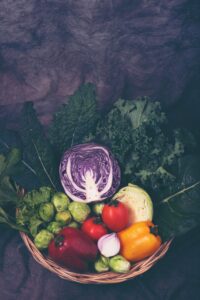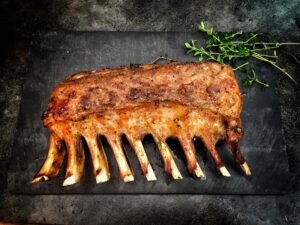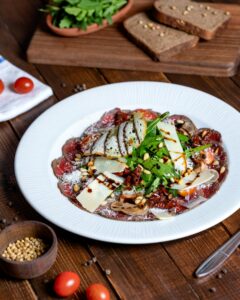10 Best Foods to Eat for Muscle Growth( Complete companion FAQs) still, your sweats at the spa must be supported by what happens in the kitchen, If you are committed to erecting spare muscle. While your drill plan helps break down muscle filaments, your nutrition is what repairs and grows them — that’s how true muscle growth happens. To maximize your muscle- structure results, you should concentrate on eating nutrient- thick foods that give the protein, complex carbs, healthy fats, and essential vitamins and minerals your body needs. In this companion, we’ll walk you through the 10 stylish foods for muscle growth, explain why each bone works, and how to include them in your diurnal mess plan.
Must Read: The 9 Best Diet Plans: Sustainability, Weight Loss & More

Whole Eggs Why It’s Great for Muscle Growth
Eggs are one of the most complete and bioavailable sources of protein you can eat. Just one large egg delivers about 6 – 7 grams of protein, and it’s packed with leucine, the crucial amino acid responsible for driving muscle protein conflation. In addition to protein, they offer Healthy fats Choline( good for energy and metabolism) Vitamin D and B12, which support muscle and whim-whams function How to Use in Your Diet Boil a batch for on- the- go snacks, make omelets packed with veggies, or eat climbed eggs with whole grain toastpost-workout.
Skinless Chicken bone
Why It Works funk bone is a go- to chief for erecting spare muscle because it’s low in fat and exceptionally high in protein — about 25 – 30g per 100 grams. It’s also rich in niacin( Vitamin B3) and Vitamin B6, which help convert food into energy. How to Include It Grilled, ignited, or tattered, funk bone dyads well with rice, quinoa, or sweet potatoes for a completely balanced mess. Marinate for flavor without adding empty calories.
Must Read: Top 10 Proven Benefits of Healthy Eating
Greek Yogurt
Why It Supports Muscle structure Greek yogurt is n’t just high in total protein, but it contains both whey protein( fast- digesting) and casein( slow- digesting), which makes it a unique armament for bothpost-workout recovery and late muscle form. fresh Benefits Calcium for bone health Probiotics to support digestion Ideal Consumption Eat it with fruit and granola at breakfast or add a scoop to yourpost-workout smoothie for a delicate protein boost.

Spare Beef Why spare
Beef Is salutary for Muscle Mass Beef provides high natural value protein, meaning your body uses it effectively for growth and form. It’s also rich in Creatine( naturally being) Iron and zinc( important for muscle recovery) B12 for energy metabolism It’s especially helpful for those doing violent strength training. How to Prepare Look for spare cuts like sirloin or ground beef with lower than 10 fat. Stir- fry it with flora or prepare a beef chili with sap and tomatoes for a hearty mess.
Must Read: 9 Benefits of Protein for Health and Athletic Performance
Salmon How It Helps Muscle Growth
Salmon is the perfect blend of high- quality protein( about 22g per 100g) and heart-healthy omega- 3 adipose acids( including EPA and DHA), which help reduce inflammation and increase the rate of muscle protein conflation. It’s also loaded with B- vitamins Selenium Potassium mess Ideas Pan-sear or roaster- singe salmon with bomb and sauces. Add some roasted vegetables and jasmine rice for a balanced regale high in nutrients.
Cabin rubbish
Why cabin rubbish Boosts Muscle Growth Low in calories but high in casein protein, cabin rubbish helps feed muscles over a long period — especially useful when consumed before bedtime to promote overnight form. It also gives you Calcium Vitamin B12 Selenium Serving Suggestions Mix it with berries and flaxseed for a night snack, or mix into smoothies and hotcake batter for redundant creaminess and protein.
Must Read: Top 10 Best Supplements for Muscle Building
Quinoa
What Makes It a Muscle-Friendly Food Quinoa is a complete factory- grounded protein, meaning it has all nine essential amino acids. It’s also a rich source of Complex carbs Fiber Iron Magnesium( which aids muscle condensation) That makes it ideal for both insectivores and meat- eaters who need energy- thick energy. How to Use It Use quinoa as a rice relief in coliseums or salads. Brace with black sap and sautéed veggies for a nutrient-rich mess.

Tuna
Why Tuna Is Great for Gaining spare Mass Tuna delivers around 25g of protein per 100g serving, and it’s low in fat and calories. It also contains omega- 3 adipose acids and vitamin D, which support muscle function, strength, and common health. Easy Ways to Eat Add canned tuna to whole grain wraps with avocado, mix it into pasta salads, or eat it on whole- grain crackers as a muscle- fueling snack.
Must Read: The 10 Best Vegan Meal Delivery Services in 2025
Brown Rice
Why It Supports Muscle structure Brown rice is a great complex carbohydrate that delivers long- lasting energy, essential for those hitting the spa hard. It contains fiber, magnesium, and small quantities of protein to support exercise performance and recovery. It also helps replenish glycogen stores, the primary energy muscles use during strength training. Stylish Use Serve it alongside protein-rich foods like funk or fish. Add fumed vegetables for a completepost-workout mess.
Almonds Muscle Benefits
Almonds are an excellent source of healthy monounsaturated fats, factory- grounded protein, and micronutrients like magnesium and vitamin E. Magnesium supports muscle function and prevents cramping, while Vitamin E helps repair cell damage. Serving Tips A sprinkle of raw almonds makes a great pre- orpost-workout snack. You can also add almond adulation to oatmeal, protein shakes, or whole- grain toast. 📌 Key Nutrition Strategies for Muscle Growth Eating the right foods is one part of the mystification. Then are some tips to maximize your muscle- structure results through nutrition.
Must Read: 12 Proven Ways to Lose Belly Fat Quickly
➤ Eat in a Sweet supernumerary To make muscle, you need to consume further calories than you burn. Start by aiming for 250 – 500 redundant calories daily.
➤ Prioritize Protein diurnal Consume 1.6 – 2.2 grams of protein per kilogram of your body weight. Spread your input throughout the day for optimal immersion
➤ Don’t Skip Carbs
Carbohydrates fuel your workouts. Include sources like sweet potatoes, oats, brown rice, and fruit in your meals.
➤ Stay Hydrated
Proper hydration aids nutrient transport, prevents cramping, and supports workout recovery.
➤ Sleep & Recovery
Growth happens during recovery — not in the gym. Aim for 7–9 hours of quality sleep each night and consider a bedtime snack like cottage cheese to reduce overnight muscle breakdown.
Conclusion
Nutrition is often the missing link between working out and actually seeing muscles grow. Adding these 10 muscle-building foods into your diet regularly can help you build strength, recover faster, and reach your physique goals.
Don’t forget—consistency matters more than perfection. Stick to whole, nutrient-rich foods paired with intelligent training, and the gains will follow.
Must Read: 10 Best Health Benefits of a Morning Walk
FAQs
What’s the best food overall for muscle building?
No single food does it all, but lean meats like chicken breast and salmon offer optimal protein and healthy fats, while eggs are great for versatility and amino acid content.
Can I build muscle without animal products?
Yes! Using foods like quinoa, tofu, lentils, beans, and plant-based protein powders, you can build muscle effectively on a vegetarian or vegan diet.
“Which of these body-building foods are you already eating — and which one do you can’t wait to try next? Share your thoughts in the comments below!”

Zain Ul Hassan is the founder of Zaha Fitness. He writes practical, research-backed articles on fitness, weight loss, and natural health. His goal is to help people live healthier lives using simple and effective tips.
